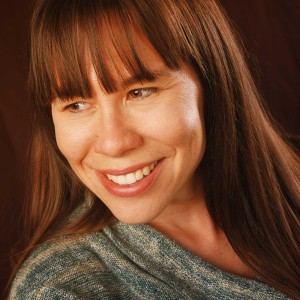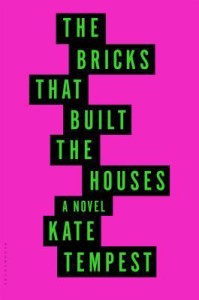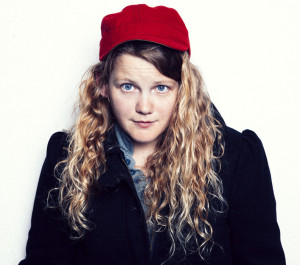David Wilk interviews Brooke Warner of She Writes Press
July 19, 2016 by David
Filed under PublishingTalks, The Future
 Publishing Talks began as a series of conversations with book industry professionals and others involved in media and technology about the future of publishing, books, and culture. As we continue to experience disruption and change in all media businesses, I’ve been talking with some of the people involved in our industry about how publishing might evolve as our culture is affected by technology and the larger context of civilization and economics.
Publishing Talks began as a series of conversations with book industry professionals and others involved in media and technology about the future of publishing, books, and culture. As we continue to experience disruption and change in all media businesses, I’ve been talking with some of the people involved in our industry about how publishing might evolve as our culture is affected by technology and the larger context of civilization and economics.
I’ve now expanded the series to include conversations that go beyond the future of publishing. I’ve talked with editors and publishers who have been innovators and leaders in independent publishing in the past and into the present, and will continue to explore the ebb and flow of writing, books, and publishing in all sorts of forms and formats, as change continues to be the one constant we can count on.
I really enjoy talking to the innovators in our industry who are creating new modes of publishing and opportunities for writers. Brooke Warner and Kamy Wicoff founded She Writes Press in 2012 to provide writers with new publishing opportunities. Kamy operated the online community, She Writes, which was created to connect and serve women writers, both established and aspiring, and Brooke came from independent publishing.
Brooke’s first job in publishing was with the renowned North Atlantic Books in Berkeley (founded by Richard Grossinger and Lindy Hough). Subsequently, she was Executive Editor at Seal Press, working there for eight years. Toward the end of her time there, she felt she was witnessing firsthand the contracting publishing environment, where as editor, she was frequently rejecting well-written books, simply because the authors she was working with did not have the kinds of “author platforms” that commercial publishers now virtually require.
Kamy and Brooke envisioned a new kind of publishing company that would enable authors to be invited to publish based on the merit of their writing alone. They wanted to establish a publishing business for women writers that would itself enable the kind of a platform that could launch – and grow – the writing careers of their client authors. In 2014, She Writes Press became part of SparkPoint Studio, LLC., whose CEO is Crystal Patriarche.
She Writes is now a solid publishing partner for authors who might otherwise struggle with self publishing. With a strong editorial effort, traditional book distribution (through Ingram Publisher Services) and an in-house marketing and publicity team (through Patriarche’s publicity company, BookSparks) available to SWP authors, She Writes Press has become successful in the emerging category of “hybrid” publishers.
In this interview, where Brooke explains how She Writes works and the problems it is solving for now more than a hundred writers, and talks about the current and future of trade book publishing.
In addition to being publisher of She Writes Press, Brooke is president of Warner Coaching Inc., and author of Green-light Your Book, What’s Your Book?, How to Sell Your Memoir, and the co-author of Breaking Ground on Your Memoir. She currently sits on the boards of the Independent Book Publishers Association, the Bay Area Book Festival, and the National Association of Memoir Writers. She blogs actively on Huffington Post Books and SheWrites.com. She lives and works in Berkeley, California.
Length alert – we had a good time talking so this interview runs just over 45 minutes.
Podcast: Play in new window | Download
Kate Tempest: The Bricks that Built the Houses: A Novel
July 5, 2016 by David
Filed under Fiction, WritersCast
 9781620409015 – Bloomsbury USA – 416 pages – Hardcover – $26 – ebook versions available at lower prices, paperback scheduled for February 2017
9781620409015 – Bloomsbury USA – 416 pages – Hardcover – $26 – ebook versions available at lower prices, paperback scheduled for February 2017
I found out about Kate Tempest more or less accidentally, through an odd set of search results one day while fooling around on YouTube, and therefore I must thank the seemingly strange, but often wonderful algorithms of its search tools. What a discovery! After seeing and hearing Kate’s poetry performances, I immediately bought her books and was completely enthralled.
I don’t seem to have too many poetry friends who know about Kate’s work, and that is a shame. She is British, and young, and very modern in affect. But she is an old soul, with a deep and powerful intellect, and her voice is one that I find both compelling and mesmerizing. I think she is simply a great writer, and stands out for the power of the words she marshals as well as the intellection that informs those words.
If you have not heard or seen Kate Tempest, or heard of her work, I’d urge you to visit YouTube now, and spend some time with her work. You might want to start with the incredible poem “Progress” (which you can also read to yourself in her book Hold Your Own). The video of her performing this poem gives you just a taste of what her work is like. It’s a remarkable commentary on religion and meaning. Tempest has got a lot to say and says it powerfully and clearly, with an almost religious (or in this case anti-religious) fervor. It’s totally captivating to listen to her syncopated rapping poetry. She has got the fever.
Kate has expanded her narrative abilities, moving from hip hop poet to playwright and now to novelist, an amazing journey that not very many poets or performers have undertaken. Usually poets are best at short bursts of ideas, or word paintings, they are not often masters of narrative, and while there are certainly poets who have written novels, novelists who write poetry, and songwriters who tell great stories, it’s not am easy thing to move from these genres to the more expansive form a novel takes, and the concentration on detail and complexity of characters as well.
From what Kate told me when we talked, she conceived this story first for one of her rap albums, and then carried the novel around with her while she toured with her band, alchemically transforming the story from poetry to prose, somehow managing to find the time and emotional space to get it down whole whilst on the road (and then later rewrote and rewrote to get it done).
The book is told in flashback from a powerfully lyrical opening scene, and it takes the reader some time to get her bearings and then to figure out who the various major and minor characters are, how they are related, and how they interact. But as the story unfolds, we begin to understand the journey, and these characters become indelible and specific, telling a story that is compelling and intense – and morally ambiguous. This is a modern wrapper around an ancient story, impossible to put down as it moves forward with breathless energy and heart felt imagination.
I really enjoyed talking to Kate about this novel and her work as a writer and performer. We talked in the New York office of her publisher, Bloomsbury USA.
Kate Tempest was born in 1985. She grew up and still lives in South-East London. She started out as a rapper, and a poet, and began writing for theatre in 2012. Her work includes Balance, an album she made with her band Sound of Rum; Everything Speaks in its Own Way, which is a collection of poems published by her own imprint Zingaro; GlassHouse, a forum theatre play for Cardboard Citizens; and the plays Wasted and Hopelessly Devoted both written for Paines Plough theatre and published by Bloomsbury Methuen. Her epic narrative poem Brand New Ancients won the Ted Hughes Award for New Work in Poetry. Everybody Down, her debut solo album, came out on Big Dada Records in 2014, and is the direct precursor to her novel The Bricks that Built the Houses. Her most recent collection of poems is Hold Your Own; it’s based on the myth of the blind prophet Tiresias (I recommend you find and read this book; the language is fantastic).
“As Tempest’s gorgeous streams of words flow out, they conjure a story so vivid it’s as if you had a state-of-the-art Blu-Ray player stuffed in your brain, projecting image after image that sears itself into your consciousness” – New York Times
In the old days,
the myths were the stories we used to explain ourselves
but how can we explain
the way we hate ourselves?
The things we’ve made ourselves into,
the way we break ourselves in two,
the way we overcomplicate ourselves?
But we are still mythical.
Podcast: Play in new window | Download

